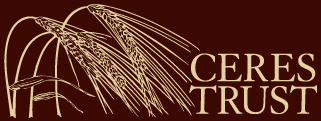Improving the Profitability of Small Farms in Missouri by Reducing Inputs through the Integration of Farmscaping and Small Ruminants for Insect Pest and Weed Control
Partner Organization: Lincoln University
Point of Contact: Dr. Jaime Piñero, Associate Professor / State IPM Specialist
900 Chestnut St. Jefferson City, MO 65101
E-mail: [email protected]
Tel: 573-681-5522
Summary
This 3-year research / outreach project aimed at developing sustainable, biologically intensive pest management solutions that integrate farmscaping components (trap cropping and insectary plants) with selective small ruminant grazing for insect pest and weed control and to improve the long-term overall profitability of organic vegetable production systems by reducing input costs and providing ancillary ecosystem services. Results from University research revealed that a trap crop mixture composed of Red Russian kale, glossy collards and mighty mustard was effective at attracting specific pests such as the cross-striped cabbage worms, harlequin bugs, and aphids, pulling them away from the cash crop. However, other pest species such as the imported cabbage worm was evenly distributed in trap crop and cash crop plants, an indication that there is still a need to improve the trap cropping system developed. The integration of trap cropping and insectary plants reduced pest densities in a field-scale study, demonstrating the potential of becoming an effective component of IPM by maximizing natural enemy – pest interactions. Research at grower cooperators’ land showed that for farm # 1 Red Russian Kale was the best trap crop for indicating aphid pressure. For farm # 2, the trap crop mixture also attracted aphids and Harlequin bugs, resulting in less pest densities in the broccoli cash crop. Aphid mummies (aphids that were parasitized by a wasp) were found only on trap crop plants. Additional research indicated that AZERA® and Pyganic® insecticides applied at the highest label rate is the most viable tool organic farmers have to suppress hard-to-kill insects such as harlequin bugs. The last project objective aimed at assessing the effectiveness of sheep grazing for controlling weeds while also suppressing insect pests through grazing. At the University farm, weaned lambs were used to graze the grass in the row middles of a blueberry orchard. The type of fencing used was Gallagher Smart Fence, a 4-strand portable fence, and a solar-powered energizer to electrify the fence. The sheep were confined to the grassy areas between the rows and along the edges. While this type of selective grazing proven effective, some mowing was still necessary but mowing intervals were which led to some cost savings. Several farmers in Missouri have adopted farmscaping as a simple, effective, and affordable approach to enhance the abundance and diversity of natural enemies (parasitic wasps and predatory insects) of key pests of vegetables. Overall, this project has resulted in the development of organic IPM strategies that effectively protect Brassica crops from the most important insect pests. The numerous outreach activities that were conducted reached over 2,000 farmers in a 3-year period.
